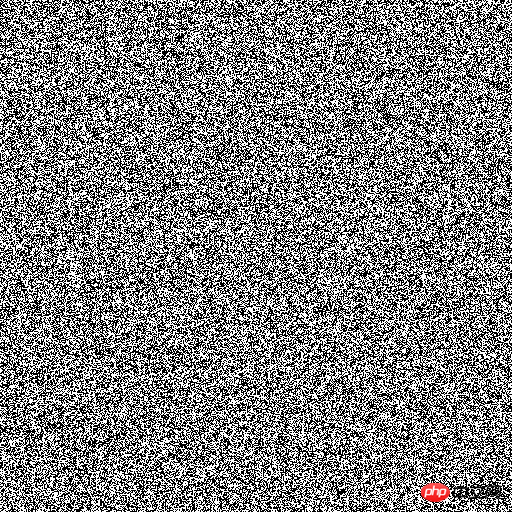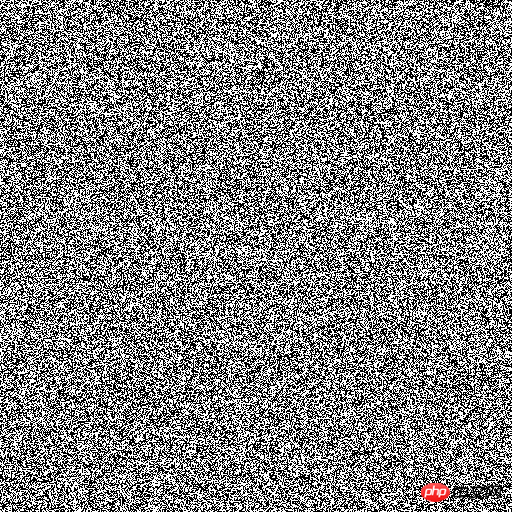
Because I need to use php to generate 0~1 random decimals for my work, I wrote an article before "php method to generate 0~1 random decimals", based on mt_rand() and mt_getrandmax()accomplish.
Later some netizens commented that the PHP native method lcg_value() can generate random decimals from 0 to 1.
float lcg_value ( void )
lcg_value() returns a pseudo-random number in the range (0, 1). This function combines two congruential generators with periods 2^31 - 85 and 2^31 - 249. The period of this function is equal to the product of these two prime numbers.
Return: pseudo-random number in the range (0, 1).
<?phpfor ($i=0; $i<5; $i++){ echo lcg_value().PHP_EOL;
}?>Output:
0.11516515851995 0.064684551575297 0.68275174031189 0.55730746529099 0.70215008878091
The running time of executing 100,000 times based on mt_rand() and mt_getrandmax() algorithms
<?php/**
* 生成0~1随机小数
* @param Int $min
* @param Int $max
* @return Float
*/function randFloat($min=0, $max=1){
return $min + mt_rand()/mt_getrandmax() * ($max-$min);
}// 获取microtimefunction get_microtime(){
list($usec, $sec) = explode(' ', microtime()); return (float)$usec + (float)$sec;
}// 记录开始时间$starttime = get_microtime();// 执行10万次获取随机小数for($i=0; $i<100000; $i++){
randFloat();
}// 记录结束时间$endtime = get_microtime();// 输出运行时间printf("run time %f ms\r\n", ($endtime-$starttime)*1000);?>Output: run time 266.893148 ms
Running time of executing lcg_value() 100,000 times
<?php// 获取microtimefunction get_microtime(){
list($usec, $sec) = explode(' ', microtime()); return (float)$usec + (float)$sec;
}// 记录开始时间$starttime = get_microtime();// 执行10万次获取随机小数for($i=0; $i<100000; $i++){
lcg_value();
}// 记录结束时间$endtime = get_microtime();// 输出运行时间printf("run time %f ms\r\n", ($endtime-$starttime)*1000);?>Output: run time 86.178064 ms
Execution time comparison, because lcg_value() is directly a native PHP method, and mt_rand() and mt_getrandmax() need to call two methods and need to be calculated, so The execution time of lcg_value() is about 3 times faster.
Random effect based on mt_rand() and mt_getrandmax() algorithms
<?php/**
* 生成0~1随机小数
* @param Int $min
* @param Int $max
* @return Float
*/function randFloat($min=0, $max=1){
return $min + mt_rand()/mt_getrandmax() * ($max-$min);
}
header('content-type: image/png');$im = imagecreatetruecolor(512, 512);$color1 = imagecolorallocate($im, 255, 255, 255);$color2 = imagecolorallocate($im, 0, 0, 0);for($y=0; $y<512; $y++){ for($x=0; $x<512; $x++){ $rand = randFloat(); if(round($rand,2)>=0.5){
imagesetpixel($im, $x, $y, $color1);
}else{
imagesetpixel($im, $x, $y, $color2);
}
}
}
imagepng($im);
imagedestroy($im);?>Random effect diagram:

##Random effect of lcg_value()
<?phpheader('content-type: image/png');$im = imagecreatetruecolor(512, 512);$color1 = imagecolorallocate($im, 255, 255, 255);$color2 = imagecolorallocate($im, 0, 0, 0);for($y=0; $y<512; $y++){ for($x=0; $x<512; $x++){ $rand = lcg_value(); if(round($rand,2)>=0.5){
imagesetpixel($im, $x, $y, $color1);
}else{
imagesetpixel($im, $x, $y, $color2);
}
}
}
imagepng($im);
imagedestroy($im);?>
Comparing the random effects, it can be seen that using mt_rand() and mt_getrandmax( ) algorithm generates random effects that are out of order, and the random effects are better than lcg_value().
This article explains the comparison of the effects of generating 0~1 random decimals between php lcg_value and mt_rand. For more related content, please pay attention to the php Chinese website.
How to use php to format the ID prefix class
How to use php to print_r Method to restore the processed data to the original array
Method to determine whether the connection is available through PDO in php
The above is the detailed content of Comparison of the effects of php lcg_value and mt_rand generating random decimals from 0 to 1. For more information, please follow other related articles on the PHP Chinese website!




